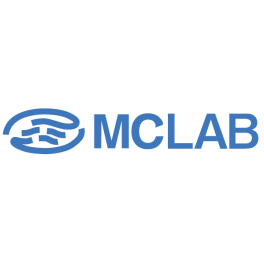 View full size
View full size
- Nucleic Acid Analysis
- Protein Analysis
- Biochemical Reagents
-
Enzymes
- Thermophilic DNA Polymerases
- Mesophilic DNA Polymerases
- Restriction Endonucleases
- Reverse Transcriptase and RNA Polymerases
- DNA/RNA Ligases
- RNases
- Proteases
- Nucleases
- Kinases
- Phosphatases and Sulfurylases
- DNA Repair Proteins
- Single-Stranded DNA Binding Proteins
- Chaperon Proteins and Disulfide Bond Isomerase
- Others
- Gene editing
- Molecular cloning
- Clinical diagnostics
- Human Identification STR kits
- Laboratory instruments
- Software
- A&A Biotechnology
- AdvancedSeq
- BioDynami
- Plant Cell Technology
News
-
RANK 2026
Visit us at the jubilee 20th edition of the RANK 2026 professional conference, which will take place on March 18–19 in Pardubice at the ABC Club. The conference is organized by the Czech Society of Cl...
Read more -
XXXV. Izakovičov memoriál 2025
We are pleased to announce our participation in the prestigious XXXV. Izakovič Memorial 2025, which will take place on October 8–10, 2025 at the Grandhotel Praha, Tatranská Lomnica. The Izakovič Memo...
Read more -
1st Czechoslovak Congress of Medical Genetics 2025
In the spring, we will participate in the 1st Czechoslovak Congress of Medical Genetics, which will take place from April 2–4, 2025, at the Cultural and Congress Center Elektra in the spa town of Luha...
Read more
 View full size
View full size
Description
Benzonase endonuclease from Serratia marcescens, can be used to degrade all forms of DNA and RNA while having no proteolytic activity. Benzonase endonuclease protein is a dimer of 30 kDa subunits with two essential disulfide bonds. This endonuclease attacks and degrades all forms of DNA and RNA (single stranded, double stranded, linear and circular) and is effective over a wide range of operating conditions. The optimum pH for enzyme activity is 8.0-9.2. It completely digests nucleic acids to 5′- monophosphate terminated oligonucleotides 3 to 5 bases in length. This is ideal for removal of nucleic acids from recombinant proteins and for applications where complete digestion of nucleic acids is desirable. It also reduces viscosity in protein extracts and prevents cell clumping. Pre-treatment of a protein sample improves its resolution on 2D gel electrophoresis by eliminating any bound nucleic acids.
Features
Easy operation, time saving
Lower priced, cost-effective
No typical protease activity
Steady product quality
High purity, low pollution
Be used in more than 2000 proteins' purification
Suitable for recombinant antibody's purification
Suitable for vaccine's purification
Applications
Digest native or heat-denatured DNA and RNA.
Prepare proteins in microcalorimetric experiments.
Reduce cell clumping during the preparation of chimeric cell mixtures.
Preparation of nuclear extracts by digesting DNA and releasing nuclear proteins intimately associated with DNA.
Used for the removal of nucleic acid from protein samples.
Unit Definition
One unit will digest sonicated salmon sperm DNA to acid-soluble oligonucleotides equivalent to a ΔA260 of 1.0 in 30 min at pH 8.0 at 37 °C (reaction volume 2.625 ml).
Purity
>95% determined by SDS-PAGE
Storage Conditions
50% Glycerol, 20 mM Tris HCl, pH 8.0, 2 mM MgCl2, 20 mM NaCl
Cart
Payment gate



